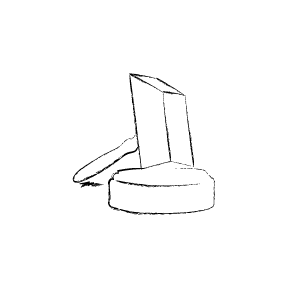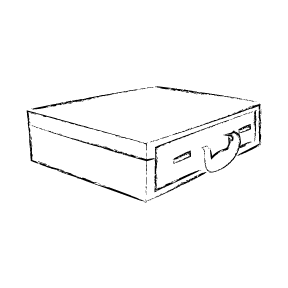Overtime wage and hour law
The firm represents employees in class or collective actions alleging violations of wage and hour law, including working off the clock, improper tip pooling, and the failure to pay overtime or minimum wage. This issue has been covered a number of times on our blog, which is excerpted below.
Wage theft from salaried employees
Today's post is written by Jay Kucia, a law fellow working for the firm this summer.
Fifty billion dollars.
$50,000,000,000.
According to reports, that is how much pay workers lose in the United States annually through wage theft. Wage theft is when an employer refuses to pay an employee wages the employee is owed. This can happen in a variety of ways, and the employee is often completely unaware of it. This is particularly true for salaried employees.
Wage theft from salaried employees is actually fairly common. However, federal wage and hour law is too confusing, so employers often get away with inventive forms of wage theft. Here’s the bottom line: Your salary itself may be illegal, and you may be entitled to overtime.
To avoid overtime, the employee must prove the work meets three tests: the salary basis test, the duties test, and the salary threshold test.
- First, the salary basis test requires the employer to pay the employee that guaranteed minimum regardless of quantity or quality of work.
- Second, the duties test limits this exemption to employees who perform certain kinds of work. Generally, the only exempt employees are certain professionals, or those who supervise, manage, and control the work of other employees.
- Finally, there is the salary level test. Under this test, an employee is not exempt unless that employee earns more than $455 per week or $23,600 per year.
First, under the salary basis test, if your employer does not pay you your salary consistently you are entitled to overtime pay. Employers often do this by docking salaried employees for time missed or product losses. If your employer says you earn a salary, be on the look out for violations like this. Your employer may be cleverly—or even unintentionally—stealing your wages.
Second, under the job duties test, you are entitled to overtime (no matter how you are paid) if your work is mainly physical or manual labor. For example, if you are called a manager and paid a salary but most of your work is cleaning up behind other workers, you are entitled to minimum wage and overtime pay.
Third, under the salary level test, you are entitled to overtime if you make less than the salary threshold of $455 per week or $23,600 per year. This is a simple math problem, and is usually obvious from the pay check.
If you think you might be experiencing wage theft, consider contacting an employment attorney.

Overtime Lawsuit filed against Hinds County School District
A lawsuit has been filed against Hinds County School District, alleging that it has underpaid its hourly employees. This class action lawsuit covers janitors, bookkeepers, and anyone else who is not exempt from overtime. (It does not include teachers or coaches, because they are exempt from the Fair Labor Standards Act.)
The lawsuit alleges that the District did not pay the employees the time they worked, shorting them anything from a few minutes to multiple hours in various weeks. This is both because of work which was taking place off the clock, and also because the District was simply not paying for all the time recorded on the timeclock.
More information about the lawsuit - including a copy of the form needed to join the class action - is available at the Hinds County overtime lawsuit website.

Servers getting ripped off on tips
Pay problems are common in restaurants and bars, as employers try to cut corners in paying tipped employees. A recent case involving Coyote Ugly shows some of the more common issues.
Many restaurant managers and owners don't understand how the minimum wage and overtime laws apply to their customer servers. The federal minimum wage of $7.25 per hour - and overtime requirements - apply to servers. This means they have to track hours actually worked, and have to pay for every work week at least the minimum wage, as well as overtime for hours over 40. However, if the servers receive tips, the employer can take a tip credit
to offset some of this amount. But there are detailed rules for this, and if they aren't followed the whole credit is invalid and the total $7.25 per hour is owed on top of all the tips. Here is how the tip credit is supposed to work:
- The employer must notify employees in advance of the tip credit rules
- The employer must keep accurate records of the amount of tips received in addition to hours actually worked
- The employer must pay at least $2.13 per hour of its own money - in other words, the maximum "tip credit" toward the minimum wage is $5.12 per hour
- Any week that tips are too low to meet the minimum wage, the employer must make up the difference by increasing hourly pay
- The employer cannot take any of the tips, except that
- The employer can create a "tip pool" to share tips with other employees, but only if advance notice is given, the terms are clear, and every single employee in the tip pool is of the type that
customarily and regularly receive tips,
such as waiters, bartenders and bussers. Usually dishwashers, cooks, chefs, janitors, managers and owners cannot be included in the tip pool.
If the employer breaks any of these rules the whole tip credit is invalid.
At Coyote Ugly, the bartenders and watresses had to share tips with security guards, and they argued that this was an invalid tip pool. The District Court disagreed. It found that in the unique environment at Coyote Ugly, security was part of the show, interacting with customers and entertaining them. This included barking
in the street, flyering along with bartenders, wearing silly wigs and shouting quips to bring in customers like hot beer, cold women!
They dance with customers and sometimes perform choreography with bartenders. For this reason, the Court found them validly included in the tip pool
But Coyote Ugly still lost a significant part of the lawsuit because the company had forced employees to work off the clock - for example, where bartenders spent time in photo-shoots for the swimsuit calendar without hourly pay. Most troubling of all, though, was the evidence that the company deliberatly falsified time and attendence records to avoid paying for all the time worked.
Read the Court's complete Coyote Ugly decision here.

Fighting against Wage & Hour Retaliation
As with many other statutes, the Fair Labor Standards Act provides protections to employees that are trying to enforce their rights. If an employer fires or disciplines an employee for raising FLSA concerns or filing an overtime/minimum wage lawsuit, the employer can be subject to much greater liability than merely paying for the lost wages. And the FLSA in particular has somewhat stronger protections than most anti-retaliation statutes.
Informal
and internal complaints are protected.
[A]n informal, internal complaint may constitute protected activity.
Hagan v. Echostar Satellite, LLC, 529 F. 3d 617, 625-27 (5th Cir. 2008).Kasten v. Saint-Gobain Performance Plastics Corp., 131 S. Ct. 1325 (2011) This includes calling HR, or simply telling your supervisor. Of course, complaints to the U.S. Department of Labor or lawsuits filed in court are also protected against retalitaion.
However, the complaint must be about violations of the FLSA. It is not enough to complain that the pay is too low
in some vague, general sense. The employee must make it clear that it is minimum wage or overtime violations that are being alleged, whether by using those words or otherwise. And these allegations must be, in general, reasonable and asserted in good faith. As a practical matter, it is important to put these sorts of thing in writing.
It also includes complaints you make on behalf of someone else, other than yourself. One limitation on this, however, is important for managers and HR employees in particular to bear in mind. A complaint which you simply pass along
or which you make as part of your job duties is not protected activity.
Emotional distress and other damages are available for retaliation violations.
The remedies available for retaliation claims under Section 15(a)(3) are broader than those available for garden-variety FLSA violations. They include not only back pay for his missed wages since termination, as in any other wrongful termination case, but Congress amended the Act in 1977 to provide that any employer who violates the provisions of section 215 (a)(3) of this title shall be liable for such legal or equitable relief as may be appropriate to effectuate the purposes of section 215 (a)(3) of this title, including without limitation employment, reinstatement, promotion, and the payment of wages lost and an additional equal amount as liquidated damages.
As Judge Easterbrook put it in Travis v. Gary Comty. Mental Health Ctr., Inc., 921 F.2d 108 (7th Cir. 1990), this amendment authorizes ‘legal’ relief, a term commonly understood to include compensatory and punitive damages.
As the Fifth Circuit recently ruled, this means that employees can get emotional distress damages for wrongful termination in violation of Section 15(a)(3) of the FLSA. Pineda v. JTCH Apts., 843 F. 3d 1062 (5th Cir. 2016).
Personal, individual liability of business owners and managers
Assuming the business meets the jurisdictional limit of doing at least $500,000 per year in business, you should also be aware that the corporate form will be no shield to individual liability by the owners and operators of the company. Under the FLSA specifically, the courts have held that such persons are - individually, jointly, and severally - employers
under the Act, and subject to individual liability. Donovan v. Sabine Irrigation Co., Inc., 695 F.2d 190, 194-95 (5th Cir. 1983); Wirtz v. Ross Packaging Co., 367 F. 2d 549 (5th Cir. 1966).
Whistleblower that raise overtime and minimum wage violations have significant legal protections, and no employee should act without knowledge of them.

Getting paid extra for delayed paychecks under the FLSA
When the federal government shut down, mired in Congressional gridlock, they couldn't close the prisons. They didn't want to shut down all the airport security screening either. And what about government employees at hospitals?
Fact is, a lot of employees were considered too immediately essential to be given the time off. But with no money authorized to pay these employees, the executive decided to delay paying them for their work until appropriations were authorized.
There's just a couple problems with that - most significantly, it means they weren't paid minimum wages or overtime required under the Fair Labor Standards Act on their regularly scheduled pay day. The government argued no harm, no foul
because they were paid everything they were owed, and it was only delayed a week or two.
The Court of Federal Claims disagreed. The court held that on time
payment was a requirement of the statute, based in part on the Supreme Court's venerable decision in Brooklyn Savings Bank v. O'Neil, 324 U.S. 697 (1945).
What this means is that the employees may get liquidated damages,
which is, in essence, an extra paycheck over and above what they should have been paid. So, for example, if a $700 paycheck is delayed for a month, then, in addition to paying you the $700 back, your employer also owes you an extra $700 just because the payment was late.
The same applies to overtime. It is illegal to delay paying overtime - the overtime payment must be included in the same, regularly scheduled check as the rest of the pay for that week. A delayed overtime payment entitles an employee to liquidated damages that double the overtime payment.
This is true no matter who you work for - if you are covered by any minimum wage law, then you are entitled to payment on time.
I'm pursuing a case like this right now against the United States Postal Service for repeatedly missing payments and screwing up deductions. You can read the publicly available complaint here.

Dancers sue Illusions Gentlemen's Club for unpaid wages
The class of dancers and former dancers at Illusions Gentlemen's Club in Woodville, Mississippi, have recently filed a wage lawsuit against the company. The employees are represented by Joel Dillard, P.A. You can read more about the suit, including viewing the Complaint and Motion for Conditional Class Certification, at the firm's informational website for the Illusions Lawsuit.



Pursuant to MRPC 7.4(a)(2) FREE BACKGROUND INFORMATION AVAILABLE UPON REQUEST
This site is for general information only, and creates no attorney-client relationship. Sending inquiries to the firm does not create an attorney-client relationship. By calling or emailing the firm, you are consenting to receive return calls, emails, mailings and text messages from the firm.
To get legal advice about an employment law, labor law, federal employee law, whistleblower protection, labor unions, worker cooperatives, immigration, discrimination, harassment, wrongful termination, severance, or any related question, you must first have a conflicts check by the firm. We represent exclusively workers, worker cooperatives and unions, but we still must check for potential conflicts of interest, for example, between a supervisor and employee.
First provide the firm with your name, and the name of the person you are making claims against. This allows the firm to check for such conflicts of interest. Until you receive confirmation that there is NO CONFLICT, none of the information you provide will be considered confidential. Do NOT provide any confidential information before we have asked you to do so.
Once we have confirmed there is no conflict, you may discuss your matter with staff in a little more detail, and, if requested, make an appointment. If at your appointment the firm accepts you as a client in writing, then the attorney will be able to provide you with employment law advice.
.
.
.